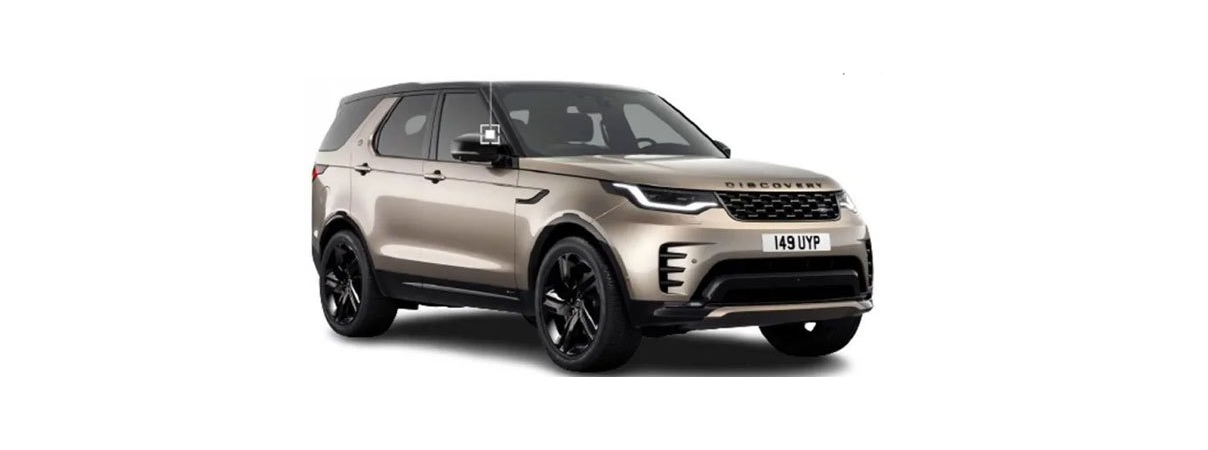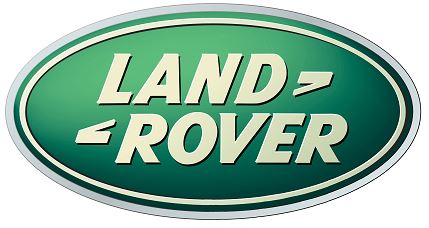2023 Land Rover Discovery Sport TOWING Owners Manual




2023 Land Rover Discovery Sport TOWING


TOWING SAFETY
Make sure the following warnings and cautions have been read and fully understood before towing a trailer. Failure to follow the guidelines could result in vehicle damage, serious injury, or death.
- Do not exceed the Gross Vehicle Weight (GVW), maximum rear axle weight, or lose weight. Exceeding any of these limits adversely affects the vehicle’s stability and braking. Increased braking distances and loss of vehicle control may be experienced. See WEIGHTS.
- Only fit approved towing accessories. Vehicle stability may be compromised if non-approved detachable towing accessories are fitted.
- Only fit approved removable towing accessories. Non-approved removable towing accessories may obscure the rear lights and license plate.
- Never use the vehicle’s towing eyes or lashing points to tow a trailer.
Do not use weight distribution hitches as vehicle damage may occur.
TOWING WEIGHTS
Make sure the relevant safety warnings and cautions have been read and understood before towing a trailer. See TOWING SAFETY.
| Description | Variant | Maximum weight lb (kg) |
|---|---|---|
| Unbraked trailer towing mass. | All vehicles. | 1 653 (750) |
| Braked trailer towing mass. | All vehicles. | 4 409 (2 000) |
| Tongue weight.¹ | All vehicles. | 220 (100) |
¹ The tongue weight can be increased to a maximum of 330 lbs (150 kg) for vehicles with 5 seats and to a maximum of 319 lbs (145 kg) for vehicles with 7 seats. Make sure that the Gross Vehicle Weight (GVW), the Gross Train Weight (GTW), and the maximum rear axle weights are not exceeded. If required, remove weight from the vehicle to facilitate the increased tongue weight.
Make sure to never exceed the GVW, the GTW, or the front and rear axle weights. See WEIGHTS.
Include the trailer’s tongue weight when calculating the GVW and rear axle weight.
When calculating the vehicle’s rear axle weight, the vehicle’s payload weights must also be considered. Include the combined weights of all the rear passengers, the loadspace, roof rail, accessory equipment, and the trailer’s tongue weight. The combined weights must never exceed the GVW or the maximum weights for the front and rear axles.
Make sure the legal requirements for the country in which the vehicle is traveling are observed.
For further information, contact a retailer/authorized repairer and quote the Vehicle Identification Number (VIN). See LABEL LOCATIONS.
TOW HITCH RECEIVER
Make sure the relevant safety warnings and cautions have been read and understood before towing a trailer. See TOWING SAFETY.
The fitting of a tow hitch is required before towing. See TOW HITCH.
The tow hitch receiver is rated as Class IV.
Make sure that safety chains are used and connected as shown.
Do not loop a safety chain over the tow ball. The safety chain may slide off, preventing correct operation in the event that the trailer becomes disconnected. Failure to correctly secure a safety chain could result in serious injury or death.
- Vehicles without a spare wheel.
- 7 seat vehicles with a spare wheel.
TOW HITCH
Make sure the relevant safety warnings and cautions have been read and understood before towing a trailer. See TOWING SAFETY.
The fitting of a tow hitch is required for towing with the tow hitch receiver.
The following tow hitch dimensions must be adhered to:
The following dimensions are calculated with a tow ball center to tow hitch plate height of 2.48 inches (63 mm). If a different ball size is used, adjust the dimensions accordingly.
- The maximum recommended length is 14 inches (359 mm).
- To achieve the maximum ball height, a rise of 0.15 inches (4 mm) is recommended.
To achieve the minimum ball height, a drop of 0 inches (0 mm) is recommended.
- The maximum recommended length is 7.4 inches (190 mm).
- To achieve the maximum ball height, a rise of 0.15 inches (4 mm) is recommended.
To achieve the minimum ball height, a drop of 0 inches (0 mm) is recommended.
If in any doubt about the fitment of a tow hitch, consult a retailer/authorized repairer.
TOWING A TRAILER
Make sure the relevant safety warnings and cautions have been read and understood before towing a trailer. See TOWING SAFETY.
Before towing a trailer, make sure both the vehicle and the trailer are being used in accordance with the manufacturer’s recommendations, and any applicable legislation. See TOWING WEIGHTS and WEIGHTS.
A reduction in the performance of the Air Conditioning (A/C) system is normal under high load towing conditions.
HITCH ASSIST
Make sure the relevant safety warnings and cautions have been read and understood before towing a trailer. See TOWING SAFETY.
Hitch assist displays a rear camera image on the touchscreen, to aid in the process of connecting a trailer. Hitch assist overlays an approximation of the tow ball’s position and the intended steering direction.
The driver is responsible for calculating correct distances and maneuvering the vehicle to a trailer’s tow hitch. Failure to maneuver the vehicle accurately may result in damage to the vehicle and trailer.
The accuracy of the hitch assist is affected by the height of the trailer’s tow hitch compared to the vehicle’s tow ball. The maximum height difference should be no more than 1.2 in (3 cm).
To activate hitch assist:
- Select Reverse (R). The touchscreen automatically displays a rear-view camera image.
- Select TOWING.
- Reverse the vehicle towards the trailer.
- Maneuver the vehicle until it is in the required position.
TRAILER ELECTRICAL CONNECTION
Make sure the relevant safety warnings and cautions have been read and understood before towing a trailer. See TOWING SAFETY.
The information in the following table should be used to confirm if a trailer or lighting board is compatible with the vehicle. The vehicle is unable to detect a trailer or lighting board that does not meet the specification given.
| Function | Minimum load | Maximum load | ||
|---|---|---|---|---|
| Milliamps (mA) | Watts | Amps | Watts | |
| Left turn signal and brake light. | 50 | 0.6 | 5 | 60 |
| Right turn signal and brake light. | 50 | 0.6 | 5 | 60 |
| Side marker lights. | – | – | 10 | 120 |
| Reverse lights. | – | – | 5 | 60 |
| Ignition feed. | – | – | 15 | 180 |
Only use equipment that requires a 12V supply from the vehicle.
Only attach appropriate electrical connectors, which are in good condition, to the trailer socket. Using inappropriate or sub-standard towing equipment may adversely affect the accuracy and performance of the vehicle’s towing features.
The trailer turns signal lamp flashes alongside the relevant turn signal lamp in the instrument panel when:
- An electrical connection is present between the vehicle and the trailer.
- The vehicle’s turn signals are used.
If the trailer turn signal lamp does not flash, check the trailer’s electrical connection. Take appropriate action to make sure the trailer’s turn signals are functioning correctly.
TRAILER STABILITY ASSIST (TSA)
Make sure the relevant safety warnings and cautions have been read and understood before towing a trailer. See TOWING SAFETY.
Trailer Stability Assist (TSA) automatically detects when sway is developing on a correctly attached trailer. When active, TSA gradually reduces the vehicle’s speed to help regain control of the trailer.
TRAILER STABILITY ASSIST (TSA) LIMITATIONS
Trailer Stability Assist (TSA) does not operate if:
- The trailer is jack-knifing.
- Dynamic Stability Control (DSC) is switched off.
TSA performance may be reduced when traveling on slippery surfaces.
TRAILER CALIBRATION
Make sure the relevant safety warnings and cautions have been read and understood before towing a trailer. See TOWING SAFETY.
The two assist features do not operate until a trailer profile is created, and the corresponding trailer is connected and calibrated. A trailer profile must be created before the trailer is calibrated.
The trailer does not need to be connected to the vehicle to create a profile. The trailer must be connected to the vehicle in order to be calibrated.
To create a trailer profile:
- Touch the app icon on the driver’s sidebar. See TOUCHSCREEN HOME MENU.
- Select TOWING & TRAILERS.
- Select +.
- Select the trailer type from the available options.
- Enter the trailer dimensions.
Follow the on-screen instructions to calibrate the trailer, if it is already connected.
Create two trailer profiles for open trailers for greater system accuracy. For example, create one profile with the trailer loaded with a boat, vehicle, etc., and one profile with the trailer unloaded.
The trailer calibration process may not perform accurately in low ambient light levels. Always attempt to calibrate a trailer in good ambient light levels. Failure to accurately carry out the calibration process may result in damage to the vehicle or trailer.
The tow assists icon displayed on the touchscreen when a trailer is connected. Select the appropriate trailer profile.
If the trailer has yet to be calibrated:
- Touch the tow assist icon.
- Select the appropriate trailer profile.
- Follow the on-screen instructions to calibrate the trailer.
TOW ASSIST
Make sure the relevant safety warnings and cautions have been read and understood before towing a trailer. See TOWING SAFETY.
Tow assist only operates if the connected trailer has had a profile created and has been calibrated. See TRAILER CALIBRATION.
Tow assist displays camera views of the rear or side of the vehicle, to assist the driver when reversing a trailer. Trajectory lines are overlaid onto the images, depicting the predicted path of the trailer. Different camera views can be selected via the touchscreen. See TOUCHSCREEN HOME MENU.
Tow assist can be configured to use either the surround camera system or the rear camera system.
The tow assists icon displays on the touchscreen passenger side bar when a trailer is connected. See TOUCHSCREEN HOME MENU.
To activate two assists:
- Touch the tow assist icon.
- Select the appropriate profile for the connected trailer.
- Select Reverse (R).
The trajectory lines change color based on the angle of the trailer in relation to the vehicle. Red trajectory lines indicate that damage may occur to the vehicle or trailer if the steering is turned further in the same direction.
TOW ASSIST LIMITATIONS
The following may have an effect on two-assist performances:
- Varying ambient light conditions: If varying light conditions are experienced, the trajectory lines are removed from the touchscreen image.
- If a door, or the tailgate, is opened: In this event, the corresponding camera view is replaced with a black screen.
- If the camera wash feature is used: In this event, the rear camera view becomes unclear.
ADVANCED TOW ASSIST
Make sure the relevant safety warnings and cautions have been read and understood before towing a trailer. See TOWING SAFETY.
Advanced tow assist only operates if the connected trailer has had a profile created, and has been calibrated. See TRAILER CALIBRATION.
Advanced tow assist displays camera views of the rear or side of the vehicle, to assist the driver when reversing a trailer. Trajectory lines are overlaid onto the images, depicting the path of the trailer. Different camera views can be selected via the touchscreen. See CAMERA SYSTEM OVERVIEW.
Advanced tow assist also operates the steering wheel when the vehicle is reversing, and all conditions are met.
The vehicle’s speed and brakes must be controlled by the driver.
The driver is responsible for detecting obstacles, and for estimating both the trailer and vehicle’s distance from the obstacles when maneuvering. Failure to do so can result in vehicle or trailer damage, serious injury, or death.
The tow assists icon displays on the touchscreen passenger side bar when a trailer is connected.
To enable advanced tow assist:
- Touch the tow assist icon.
- Select the appropriate profile for the connected trailer.
The advanced tow assists icon displays on the touchscreen passenger side bar once a trailer profile is selected.
Select Reverse (R).
To activate advanced tow assist:
- Touch the advanced tow assist icon on the touchscreen.
- Select START.
The advanced tow assist icon on the touchscreen now illuminates. The driver’s side rotary climate control can now be used to control the path of the trailer when reversing.
When the required path has been set using the rotary climate control, use the accelerator and brake pedals to maneuver the trailer.
The driver can take control of the steering wheel if required. In this event, advanced tow assist is canceled.
The trajectory lines change color as follows:
- Green lines indicate that the trailer is reversing in a straight line.
- Magenta lines indicate that the trailer is reversing at an angle.
- Red lines indicate that the trailer’s reversing angle is too tight. Red lines are accompanied by a warning message on the touchscreen.
The vehicle’s ignition must be switched off before disconnecting a trailer.
ADVANCED TOW ASSIST LIMITATIONS
Advanced tow assist does not operate if:
- Any gear other than the reverse is selected.
- The steering wheel is used to maneuver the vehicle.
- The tailgate is open or unlatched.
- Any of the doors are opened or unlatched.
- The rear camera becomes blocked.
- All Terrain Progress Control (ATPC) is enabled.
- The driver’s-side rotary control is used for any other purpose while advanced tow assist is active.
- The vehicle’s speed exceeds 5 mph (8 km/h).
Advanced tow assist performance is adversely affected if non-approved towing equipment is used.
The touchscreen displays messages to inform the user of any conditions that have not been met in order for the system to operate. The touchscreen also displays messages regarding system faults or performance issues.
ESSENTIAL TOWING CHECKS
Make sure the relevant safety warnings and cautions have been read and understood before towing a trailer. See TOWING SAFETY.
The following checks must be carried out before towing:
- Do not exceed the maximum permissible towing weights. See TOWING WEIGHTS.
- Load the trailer to achieve an even weight distribution between the axles when towing a trailer with more than one axle,
- Remember to include the weight of the trailer, plus the weight of the load, when calculating the laden weight of the trailer.
- If possible, spread the load of any cargo between the vehicle’s loadspace and the trailer. Loading more weight into the vehicle generally improves stability. Make sure not to exceed the vehicle’s weight limits.
- Check that the tire pressures are correct for the current loading condition of the vehicle.
- Make sure that a suitable safety chain is used and correctly connected. Refer to the trailer manufacturer’s guidelines. See TOW HITCH RECEIVER.
- Make sure that the tow ball is secure.
- Check the operation of all the trailer lights.
Recent Posts
VW Jetta Engine Fuse Box Diagram
Access the comprehensive 2010-2018 VW Jetta Passenger Fuse Box Diagram to troubleshoot electrical issues effectively.…
VW Jetta Passenger Fuse Box Diagram
Explore the comprehensive VW Jetta Passenger Fuse Box Diagram to troubleshoot electrical issues effectively. Understand…
2023 Ford F-150 Lightning Fuse Box Diagram
Under Hood Fuse Box Location Remove the front luggage compartment cover. Under Hood Fuse Box…
2022 Kawasaki NINJA H2 SX SE Brake Lever Adjuster Owner’s Manual
2022 Kawasaki NINJA H2 SX SE Brake Lever Adjuster Owner's Manual NOTICE Only adjust the front…
2023 Land Rover Range Rover Evoque Exiting The Vehicle Owners Manual
2023 Land Rover Range Rover Evoque Exiting The Vehicle SINGLE LOCKING WARNING Before exiting the…
2023 Land Rover Range Rover Evoque Front Seats Owners Manual
2023 Land Rover Range Rover Evoque Front Seats FRONT SEAT SAFETY Make sure to read…
